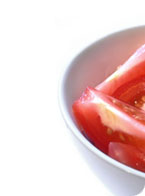
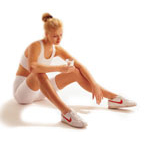
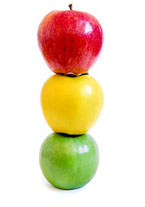
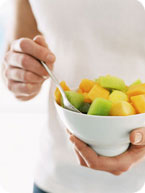
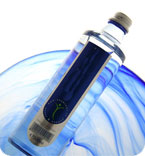

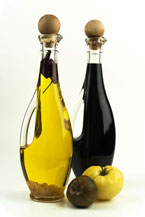

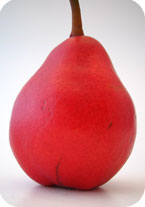
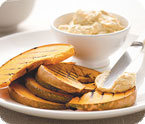
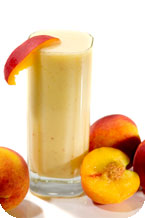

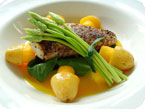
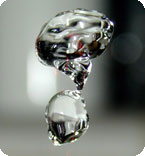



|
Nutrition Basics
The food you eat has a massive effect on every other part of your health and well being. Food is recognised by its chemical structure and this will dictate its function in the body. So if we are putting loads of food with very poor nutritional value into our bodies this will have an effect on the results we get out. Which can mean tiredness, ill health and poor results in the gym or with our training.
A balanced diet requires adequate water intake, alongside food from five nutrient groups. The five groups are Macronutrients which are Carbohydrates, Protein, Fat, and Micronutrients being Vitamins, Minerals.
Carbohydrates
Foods rich in carbohydrate, particularly unrefined carbohydrates like wholegrain breads and cereals, should form a large part of the diet. More refined carbohydrate foods - such as white bread, jams and sweets should be eaten much less. During digestion, all carbohydrates are broken down into a simple sugar, called glucose.
Glucose
Glucose is the body's primary energy source and is delivered to every cell via the blood. Excess glucose is converted into a substance called glycogen and stored in the liver and muscle tissue. Once glycogen stores are full, glucose is stored as fat.
When you exercise, the glucose present in the blood is used as an energy source. The body converts the stored glycogen back into glucose in order to fuel the exercising muscle tissue and other body systems.
If carbohydrate in the diet is restricted, a person's ability to exercise is compromised due to poor glycogen storage. This can result in a loss of protein tissue (and muscle), as well as urinary loss of essential ions, such as potassium.
Glycaemic index
The glycaemic index (GI) ranks carbohydrate-rich foods based on their rate of digestion and absorption. Moderate to high GI foods can efficiently deliver carbohydrate to the body during exercise and recovery. This is why they are increasingly used by sportspeople. However, it is generally recommended that the bulk of the carbohydrate consumed in the overall diet should have a low glycaemic index.
Eating after exercise
To top up glycogen stores after exercise, the best foods to eat are carbohydrates with a moderate to high glycaemic index, and also a good quality source of protein. This is best done in the first half hour or so after exercise. This should then be followed by foods with a low glycaemic index.
Protein
Protein is an important part of nutritional intake. It plays a key role in post-exercise recovery and also the growth and repair of tissues.
For the general populous the daily recommended amount of protein is 0.8g per kg of bodyweight per day.
But, sports people involved in non-endurance events, who exercise daily for less than 60 minutes, their protein intake should be between 0.8 to 1.5g of protein per kg of body weight per day.
And those sports people involved in endurance events and strength events, who exercise for longer periods or who are involved in strength exercise, such as weight lifting, should consume about 1.5 to 1.7gm of protein per kg of body mass.
Water
Heavy sweating depletes the body of water. Dehydration can impair athletic performance and, in extreme cases, can lead to collapse and even death. Drinking plenty of fluids before, during and after exercise is very important. The thirst mechanism should not be relied upon as a reliable indication to drink.
Following exercise, you should drink 500ml of water for every 0.4 to 0.5kg of weight lost during exercise. Fluids are especially important in warm and humid conditions. Water is the preferred fluid in most situations. Sports drinks may be useful in ultra-endurance events (greater than 90 minutes) or when a quick recovery is necessary.
Fats and oils
Fats provide a concentrated source of energy in the diet. Fat does play an important function in the diet. The building blocks of fats are called fatty acids. These can be either saturated, monounsaturated or poly-unsaturated.
Foods rich in saturated fats are usually of animal origin. Vegetable fats are generally unsaturated. Saturated fat raises the level of cholesterol in the blood. Cholesterol is present in animal foods but not plant foods. It is essential for metabolism and production of steroid hormones. Fats tend to be solid at room temperature whilst oils are liquid. We should try to balance the polyunsaturated essential fatty acids, omega 3 and omega 6.
Nutrition for fat loss
The most important thing is being consistent, unless you are preparing for a fight and wanting to cut weight rapidly, then fat loss should be slow and steady.
(Loosing only 1lb of body fat a week will result in over 3 stone in one year!)
The reason I have termed this article fat loss rather than weight loss is that ideally we don't want to loose just body weight as this includes water, bone, muscle, and connective tissue, which are all essential for life and health. But really the aim should be to reduce excess body fat stores. Unfortunately there is a common misconception that only eating too much fat in your diet can make you overweight, whereas the reality is eating too much carbohydrates and protein can make you overweight.
The key to weight management is metabolism. In other words the sum of all chemical reactions and energy expenditure that happens to our body, if you continually intake more energy than your body expends you will start to accumulate excess body fat.
Creating an Energy Deficit
In order to loose body fat we need to create an energy deficit, so the body has to use the glycogen and fat stores. This can be done by Increasing the amount of energy burned through activity / exercise or cutting down the amount taken in through the diet. By far the most effective method is to do a small amount of each.
If you are training regularly (3 - 5 x per week) then the diet restriction only needs to be minimal. Cutting out around 250 - 300 Kcals per day with the training will create this deficit:
Create a 500 Kcal deficit per day
500 Kcal deficit seven days per week
3,500 Kcal = slightly less than 1lb (0.45Kg) of FAT
Making sure you intake regular small meals means that the food can be oxidized and is less likely to be stored, also it will stave off hunger and give you the sustained energy level through the day. Also increasing the amount of water to approximately 2 - 3 litres a day will help to flush out toxins and keep your cells and tissues hydrated.
..................................................Recommendations
Increase / Include..........................................Reduce / Avoid
Daily activity and training frequency............Pre packed, processed foods
Water intake....................................................Sugar and high GI refined carbohydrates
Regular smaller meals.................................Fizzy drinks
Unrefined carbohydrates such as..............Trans fats
whole grain products.....................................Excess alcohol
Fresh fruit and vegetables............................Starving yourself
A wide range of nutrients..............................Missing meals
...........................................................................Over-eating in the evening
Below is an example daily nutrition plan for an active, male weighing 80 - 90 kgs.
..................Hour of sample day
..................6-10am - Porridge oats with whole milk
....................................1 tea or fruit juice
..................10-2pm - Wholegrain egg salad sandwich
....................................apple
....................................mixed nuts & seeds
....................................500ml water
..................2-5pm - ...Eat natural bar
....................................500ml water
....................................glass orange juice
..................5-9pm - ...2 grilled chicken breast, wholegrain rice, mushrooms, carrots
....................................energy drink & water while *training
..................9-12am - 500ml water
....................................banana (straight after *training)
....................................1 glass organic whole milk
*Training comprises of 90 mins Thai boxing
You may need to increase / decrease the amounts depending on your energy levels, as this sample plan gives around 2350 Kcals of energy. Buy a bottle of water and keep refilling it to show how much water you are drinking. Remember all these items in each time block are spread out you don't eat it all together, make sure you are eating small regular meals, so you maintain your lean tissue and hopefully increase your metabolism.
Nutrition for building mass
Ideally when you increase body weight it should be muscle and not body fat, the more rapidly we try to increase bodyweight the more likely it is that some of that increase will be fat. It is a good idea to eat around 500kcals - 1000 kcals per day more than you do at the moment, this amount will change depending on your level of activity.
The more training you do, especially long cardio and circuit sessions then the higher you calorie intake needs to be to make sure there is the building blocks that your body can use to grow. A huge increase in protein is not necessary but a small increase up to 1.8g per kilo of body weight would help. E.g. a person weighing 70kg would need to consume up to 126 grams of protein, spread out through the day.
In the beginning, those with smaller appetites may struggle to eat all the food that is needed. Bloating, nausea and constipation are common complaints early on. It is important to eat at least six meals per day to reduce these symptoms. Also start by having slightly smaller portions and gradually increase portion sizes.
As bigger quantities of food are being eaten, it is usually necessary to take in more fluids in order for the body to efficiently absorb and digest the extra food. Don't drink fluid with your meals or snacks as fluid may fill you up prematurely.
Rather than struggling to eat a few really big meals, plan regular meals plus two or three snacks. If you tend to eat erratically, write down a regular meal plan and keep to it. Make meals a little larger or more calorific. For example, have an extra slice of toast at breakfast; make coffee with milk; serve an extra spoon of mash, rice or pasta; be more generous with healthier unsaturated oils, salad dressing and spreads.
Have snacks to hand so you never go short. Good choices include nuts, seeds and raisins, pots of rice pudding, custard or yoghurt, cereal or cereal bars, flapjacks, whole milk, yoghurt drinks or smoothies, wholegrain bread, fruit. Making sure you fuel your body straight after training is important, as this will stop the body catabolising your own tissues. This can be through a supplement if necessary.
It is important to get the nutrients from good whole food choices, rather than eating lots of highly refined / processed foods. It would be more productive to prepare small meals either the night before or in the morning to take in to work with you, so you don't have to rely on eating convenience foods that do not contain the quality nutrients needed. For example chicken and rice or wholegrain tuna sandwiches.
..................................................Recommendations
Increase / Include.............................................Reduce / Avoid
Total daily calorie intake..................................Missing meals
Lots of meals through day...............................Low calorie foods
Carbohydrates straight after training.............Over training
Whole milk..........................................................Low quality protein shakes
Plan your meals
Good quality supplements
Researched, compiled, and used with permission by
Michael Power - Fitness & Nutrition Trainer for Premier Training International
|